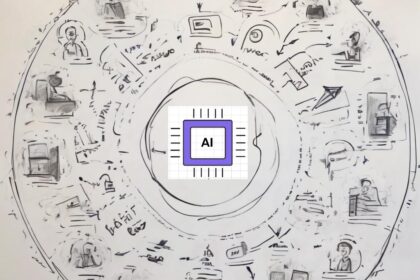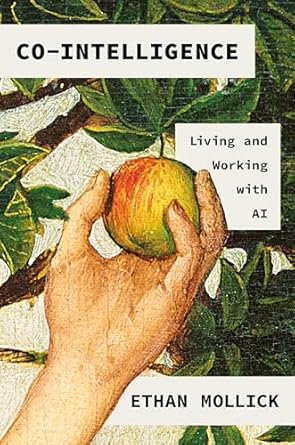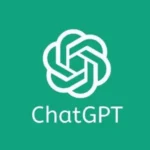
For decades, startup experienced professionals, researchers, and classically trained marketers, have been reinforcing as best we can that it is well established, proven, and certain, that marketing (aside from team) is the single greatest cause of a startup’s success or failure. We’ve been trying to explain this for the sake of the economy, of founders, and of venture capital, because despite a horrifically misled and mistaken impression that marketing means sales or promotions, and despite the terrible experiences many have had with “marketing” that isn’t actually marketing, and indeed, despite that celebrated investor or advisor who disagrees with this, you have been misled, marketing is the cause of your success or failure, full stop.
Those of us who know this weep every time we see a founder fail. We get angry every time we hear an investor say to founder that they’re not ready for marketing (idiots). Blood boils when a sales professional or product person says, “no, our thing is most important.”
So, now what? AI can replace most of marketing.
Now what? Well now, instead of dismissing advice that will harm you and instead of relegating marketing to some SEO or lead gen person claiming they’re doing “marketing” which will cause your disappointment, do it yourself – you have no excuse not to.
Marketing as we know it is dead. Not dying—dead. Gone are the days of bloated teams sitting in brainstorm sessions, debating hashtags, and running expensive campaigns with little accountability. The next wave of startups won’t succeed because of marketing, and yet, it’s absolutely still true that startups succeed or fail because of marketing. They’ll launch with armies of AI agents operating 24/7, executing strategies faster, smarter, and cheaper than any human could – all things you should have been doing yourself all along, the things you blew off because you didn’t know how, you didn’t think it mattered, or because you had some inexperienced cofounder in charge of marketing and they didn’t know what they were doing.
The beauty of now is that your excuse is gone. If you fail, it’s on you and you alone for not listening to marketers before, or in fairness, for not having the resources or advice to do it will, because now it can be done effectively and without cost.
Ethan Mollick, a professor at Wharton, has demonstrated how AI tools like ChatGPT can outperform humans in tasks like marketing copywriting and ideation. In one of his studies, AI-generated content drove higher engagement than that produced by professional marketers. In his book, Co-Intelligence: Living and Working with AI, he discusses how AI can augment human creativity and productivity.
If I were you, I’d launch a Venture Capital Fund in which the thesis is that you “Won’t Invest in Any Founder Who Isn’t Doing This…”
This isn’t hyperbole. We’re rewriting the playbook.
Let me give you chapter 1 of that playbook:
Won’t Invest in Any Founder Who Isn’t Doing This…
The single founder growth stack, achieving what once took a team and funding. Here’s how it works:
- Acquisition Agents: Your AI runs 50 meme accounts simultaneously, testing hooks across niches, generating 1,000 posts daily. It doesn’t take a and break it doesn’t stop until it finds what resonates.
- Research Agents: While you sleep, your AI analyzes 100,000 tweets per hour, surfacing unmet needs, pain points, and feature requests—opportunities no one is addressing.
- Content Agents: Every day, 200 unique hooks for platforms like X, LinkedIn, and TikTok. It learns from every response and optimizes in real-time.
- SEO Agents: 500 pages of optimized, authoritative content daily, ranking for keywords competitors haven’t even considered. Not blog posts and articles, the boom of AI is pushing for influential content to be authentic; what you’re doing here is ensuring you have pages meeting demand that is ignored.
- Community Agents: Users feel seen and heard as your AI welcomes every new sign-up, handles support tickets instantly, and turns feedback into actionable insights.
- Ad Agents: Testing 1,000 creative variations across platforms, your AI identifies winners and kills underperformers without human intervention.
- Email Agents: Personalized sequences are created, tested, and optimized, each one tailored to user behavior and engagement patterns.
- Analytics Agents: Forget waiting for quarterly reports—your AI spots trends before they become obvious, pivoting strategies in real-time.
The implications aren’t even yet fully realized which is why I’m actually speaking to investors, if your investment thesis doesn’t ALREADY demand this of founders, you probably shouldn’t be in venture capital. We’ve taking the known/certain cause of success or failure and made it all free, on demand, always available – disregarding this is as straightforward as telling your LPs you actually don’t give a damn.
Marc Andreessen spoke with fellow a16z General Partner Martin Casado about how entrepreneurs and startups might think about generative AI, largely from a product perspective. Simply put, generative AI is a major architectural shift in computing, and it represents an opportunity for startups to get a leg up on incumbents.
If I have to explain to you why marketing is intrinsically intertwined with computing (the internet), let me just advise you to go find another career path.
A solo founder, equipped with the right AI stack, can execute with the precision and scale of a well-funded startup. Startups become faster, more agile, and more data-driven. Customer acquisition becomes predictable. Growth becomes systematic. The question isn’t if this will happen—it’s who will do it first.
The Controversy: If Team is the Leading Cause of Success or Failure and Marketing is the Second Most Relevant, Should Startups be Abandoning These People First?
Well, let’s be frank, you’re not committing a 3rd of your venture to a head of marketing who knows what they’re doing anyway, are you? I know you’re not, having worked with thousands of startups, I don’t say that people who research this stuff cry when we see founders fail, because you still don’t prioritize it, and then you fail.
This is likely the most important role and person to keep on the team anyway but here’s the uncomfortable truth: most of what marketing teams do today can be automated. And let’s be honest—AI doesn’t just replicate these tasks; it often surpasses human performance. It’s faster, cheaper, and infinitely scalable. If that makes you uneasy, good. The friction you feel is the same tension the industrial revolution sparked when machines started outperforming craftsmen. It’s not about whether humans are obsolete; it’s about where we’re irreplaceable.
Now, I know you already tried to replace SEO, email, social media, sales, and PR, with tools and tech, disregarding the importance of an experienced person because you don’t value them enough. But I also know that didn’t work out too well for you, did it?
Humans excel at intuition, taste, and the ability to interpret context in ways that even the most advanced AI cannot. But let’s not romanticize the inefficiencies of traditional marketing. Do you really need a committee of humans A/B testing Instagram captions when an AI can test 10,000 variations overnight? The human role in marketing is evolving—from execution to strategy, from micromanaging campaigns to orchestrating entire systems of AI agents.
Do this yourself, or you are doomed to the outcome we all know to expect of your startup. But at the end of the day, you still really need, above all else, a person on the team that knows marketing, and knows how to do this, far more effectively than you.
There’s also a moral dimension to this shift. Critics will ask, “What happens to jobs?” That’s a fair question, but it assumes that marketing’s purpose is to create employment rather than drive growth. The harsh reality is that industries always shift, and the winners are those who adapt first. If you’re clinging to the old ways because they feel comfortable or familiar, you’re not just risking irrelevance—you’re guaranteeing it.
If you’re a founder, the question isn’t, “Should I replace my marketing team with AI?” The question is, “How fast can I do it?” If you’re an investor who doesn’t demand this and indeed even do it themselves for themselves, please stay out of the startup ecosystem. And if you’re a marketer, your value now lies in becoming the conductor of this AI orchestra. The machines are coming—be the one who tells them what song to play.
If you’re reading this and nodding along, you’re already behind. The startups that dominate the next decade aren’t waiting to see how AI plays out. They’re already using it, quietly and relentlessly. You might see their memes on TikTok, their SEO-optimized blog posts ranking on Google, or their razor-sharp email sequences hitting your inbox, but what you don’t see is the AI engine driving it all because someone who knows what they’re doing is driving it.
- Start Small, Think Big: You don’t need to overhaul your entire operation overnight. Start with a single AI agent. Maybe it’s an SEO tool generating blog posts or a chatbot managing customer queries. Measure its impact. Then scale.
- Stack Your Agents: The power isn’t in a single tool—it’s in the system. Combine acquisition agents with analytics agents, content agents with community agents. Make them talk to each other. The synergy is where the magic happens.
- Stay Curious: The tools will keep evolving. ChatGPT, MidJourney, Jasper, Perplexity AI—today’s leaders could be tomorrow’s afterthoughts. Stay informed, experiment often, and never settle for “good enough.”
- Be Ruthless About ROI: Every agent you deploy should prove its worth. If it’s not delivering results, kill it and move on. AI enables rapid iteration—use that to your advantage.
Be the person who sees the shift and acts. Because if you’re not using AI to do marketing, you’re decades behind.





Incredible insights, Paul! The potential of AI in managing multiple aspects of a business is truly transformative. It’s fascinating to see how automated agents can handle everything from content creation to real-time analytics, allowing founders to focus on their core vision while scaling efficiently.
Ian McGavin cheers. If you seen some great documentation on what specifically to do, advanced stuff, I’d love to see it.
This is what I had been doing for the State but for other things besides marketing. However, I am now pivoting to doing this fulltime with my businesses and as a consultant. I use automation to tie systems together. Basically, you automate the data dumps from your different tools either via their system or via tools like Make or Power Automate,, use API’s, use Automation Tools to feed the data into the system and have specific prompts for each step or use a CustomGPT specifically built for that task, then grab the results and have your automation feed the change into the marketing materials.
Paul O’Brien I’ll send you a flowchart with the flows as soon as possible. I’ve been slammed building.
Marcelo Tafoya Great! Lots of people asking how
Paul O’Brien I’d love to learn more about this!
Really thought-provoking article, Paul O’Brien. Thanks.
AI is no longer just a tool for efficiency—it’s a game-changer for founders seeking clarity in their personal brands and the alignment needed to thrive. But for women founders navigating burnout, isolation, and systemic inequities, it can be more: a lifeline for empowerment.
Through AI-driven insights, we’re crafting personal brands that don’t just tell a story but build a foundation for everything—career, connections, and a lifestyle designed to protect and scale your vision.
IMO, still another “blanket” thrown over the generic “start-up.” Yes, I’ve read the article. No where under that blanket is the term research or competition, or understanding of the market. Its focus is execution and tactics.
At least in the limited sample of my business, I can see AI maybe helping in automating the process of market research and competitive market analysis, it the AI had access to the original information (journals etc), to tell us what was happening in the dark corners of the industry, in labs etc. where new energy discoveries were being made.
leveraging AI not just for efficiency but to truly connect with and understand your customers’ evolving needs- this approach transforms AI from a tool into a partner, helping you create genuine value and forge lasting relationships.
Wow
I was thinking about this – too much? ? – and want to state my case (so to speak) as a statement:
Just because you’re *adverting* – i,e., sending out msg via: emails, PPC, social, even SEO – your product, doesn’t mean you’re marketing it.
Furthermore, tho it should be obvious, it doesn’t mean you’re building A Brand (i.e., company) a/o the brand (i.e., product / product line).
Speaking is not the same as being heard *and* listened to.
Metaphorically: Jumping into the deep-end of the pool and wailing your arms around isn’t swimming. If you don’t feel like you’re swimming, then there’s an excellent chance you’re not marketing.
For anyone who might be interested, here’s a “sampler” of the Mollick book.
https://www.linkedin.com/pulse/some-best-book-bits-co-intelligence-ethan-mollick-mark-simchock-kcwsf/
re: “marketing is the cause of your success or failure, full stop.”
I agree with this 100%.
But from there, we all need to realize that marketing strategy and marketing tactics & tools are not one in the same. The latter – even with all the ChatGPTs, etc in the world – will falter without the former. The stack idea, feels heavy on the T&T and lite on the S.
Put another way, in time, we’re going to have a WHOLE LOTTA startups shouting but very little of value – the market – being said.
The ones who are best positioned are the ones that are going to win. Can AI help w/ positioning? Maybe. Maybe not. Can’t hurt 🙂
https://www.linkedin.com/pulse/some-best-book-bits-positioning-al-ries-jack-trout-mark-simchock-3gjce/?trackingId=XG7xpJ97TqeXeYmlA0ZxTQ%3D%3D
Mark Simchock I swam competitively… now I feel like I’m falling short in life for not having played with a swimming analogy for startups
Paul, your insights on AI-driven marketing are intriguing. Could you share specific tools or techniques you’ve seen effectively manage these AI agents? I’m curious about practical applications and challenges.??
Yep, working on it
Useful points. As the digital mediums became the main venues for commerce and engagement, marketing has had to reinvent itself in many ways. AI agents (alongside AI) will drive more change. The scale and scope of marketing will expand – for those that dare to embrace it!